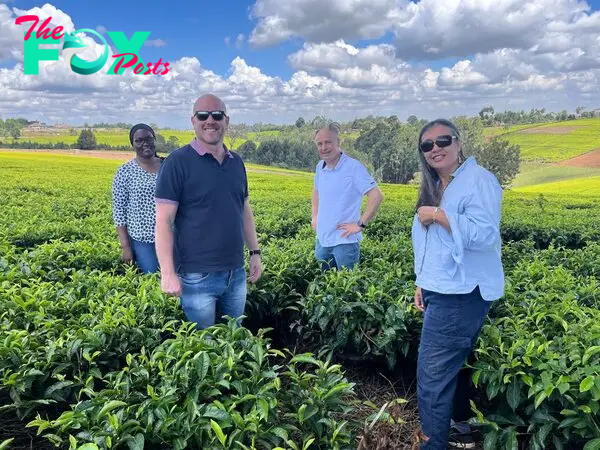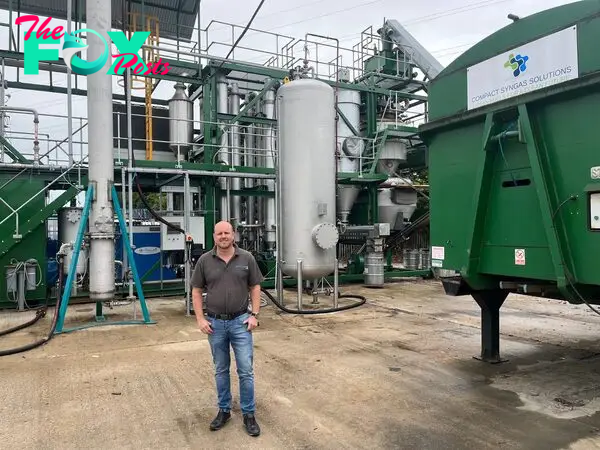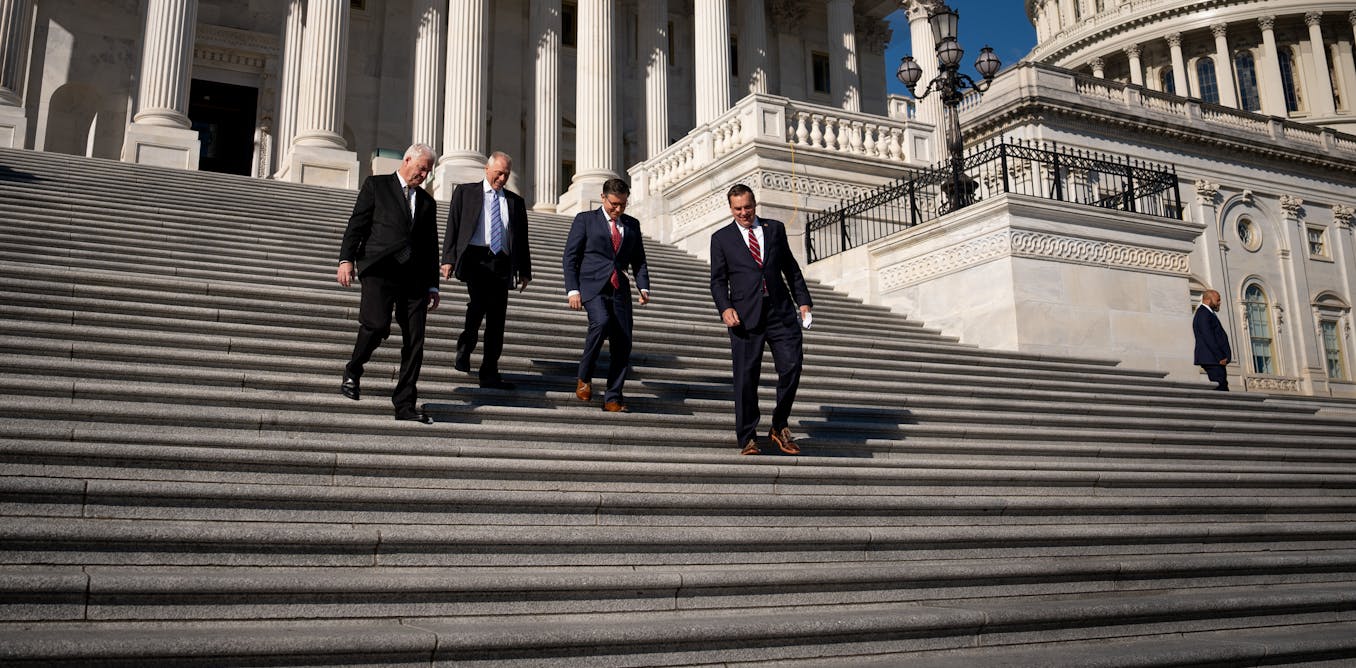Business
GREEN TEA: WELSH FIRM TO POWER KENYA FARMS WITH ELECTRICITY FROM TEA CLIPPINGS
-
A Welsh firm helps to safeguard British tea provides by utilizing waste tea clippings to make greener energy for Kenyan factories
-
Excessive vitality prices and poor grid stability are threatening the viability of Kenya’s £1 billion tea sector, which produces 70% of Africa’s black tea
-
The modern mission would be the first time waste prunings from tea manufacturing are used to provide clear electrical energy and warmth, decreasing prices and carbon emissions
-
Biochar left over from the method is used to rejuvenate the soil – rising tea yield by as much as 23% – or to retailer carbon underground to mitigate local weather impacts
-
The mission can also be creating jobs for Kenya’s well-educated underemployed younger folks, and boosting prospects for ladies
-
Compact Syngas Options lately gained £4 million from the federal government to check a way of capturing carbon from its clear gasoline course of.
Deeside, Wales – Waste-to-energy firm Compact Syngas Options helps safeguard the British cuppa with a mission that can use waste tea clippings to make greener energy for Kenyan farmers.
Kenya produces £1 billion of tea a 12 months, with as much as 1 / 4 of it destined for British tea luggage.
However the trade is threatened by an unreliable and costly electrical energy grid that cuts out for an hour a day on common, iNFLicting producers to depend on diesel turbines for energy and wooden for warmth.

Picture: From left, Emily Mutindi Mutua of IITA, Paul Willacy of CSS, Niel Schulz from United Nations Industrial Improvement Group, and Aarti Shah of IITA at a tea plantation in Limuru highlands, Kenya Image credit score: Compact Syngas Options
CSS has developed a sophisticated gasification course of that makes use of waste merchandise to generate a syngas – a mixture of hydrogen, methane and carbon dioxide and monoxide. The syngas may be burned as a greener gasoline, saving as much as 2.8kg of carbon dioxide per litre of diesel, and as much as 1.98 tonnes of carbon dioxide per tonne of fuelwood.
Carbonized biomass – for biochar – produced within the course of may be utilized to farmland to enhance soil fertility and take away carbon dioxide from the environment as a part of a seize and storage scheme, decreasing the local weather footprint of tea or producing earnings from emissions buying and selling.
Companions from the Worldwide Institute of Tropical Agriculture have quantified the detachable shares of tea pruning, recognized provide chain operations and delivered prices to the manufacturing facility, and constructed a mannequin for assessing financial savings in vitality payments and fuelwood demand. In a proof-of-concept discipline trial they discovered that recycling of biochar to plantations can increase tea yields by as much as 23%, rising fertilizer use effectivity and drought resilience.
Every 500kWh plant will create jobs for as much as ten expert technical and operational staff with an additional ten staff in fabrication and assist. Some 300 jobs must be created in Kenya throughout the first 5 years.
As soon as the mission has proved its success in Kenya, it would increase to Malawi, Uganda and South Africa, earlier than spreading internationally.
Compact Syngas Options’ superior gasification course of generates syngas and hydrogen fuel from waste merchandise, together with biomass like waste wooden and different chosen non-recyclable supplies.
Compact Syngas Options, primarily based in Deeside, Wales lately secured nearly £4 million in authorities funding to make its biomass and waste-to-hydrogen vegetation even greener by utilizing carbon seize.
“Gasification can even enable tea factories to scale back their carbon footprint and assist world tea manufacturers lower their Scope 3 emissions. Extra dependable electrical energy will enhance the standard of the ultimate product – so the advantages will likely be felt all the best way throughout to the patron.”

Picture: Paul Willacy on the waste-to-hydrogen plant In Deeside, Wales Image credit score: Compact Syngas Options
Paul Willacy, managing director of Compact Syngas Options, mentioned: “Yearly Brits drink hundreds of thousands of cuppas from Kenya, however the tea trade there’s in danger from an unreliable and costly energy provide.
“We’re going to offer vitality safety to the factories that course of our tea, whereas decreasing emissions, enhancing crop yields and bringing jobs to the nation.
“We’re massively excited concerning the impression this might have on the tea trade in Kenya and worldwide.”
Dr Dries Roobroeck, technical lead on the Worldwide Institute of Tropical Agriculture, mentioned: “We’re at all times on the lookout for modern methods to enhance crop yields, shield farmer livelihoods, and create sustainable farming methods, and this mission ticks all these containers.
“Gasification can even enable tea factories to scale back their carbon footprint and assist world tea manufacturers lower their Scope 3 emissions. Extra dependable electrical energy will enhance the standard of the ultimate product – so the advantages will likely be felt all the best way throughout to the patron.”
-

 Business21h ago
Business21h agoUS House passes measure that could punish nonprofits Treasury Department decides are ‘terrorist’
-

 Business21h ago
Business21h agoFast fashion may seem cheap, but it’s taking a costly toll on the planet − and on millions of young customers
-

 Business1d ago
Business1d agoNew Information: These HV Big Lots Are Now Staying Open
-

 Business1d ago
Business1d agoBrush Fire Rages On Near Butternut In Great Barrington, MA
-

 Business2d ago
Business2d agoU.S. Antitrust Regulators Seek to Break Up Google, Force Sale of Chrome Browser
-

 Business2d ago
Business2d agoSuccessful White Men Alone Can’t Create America’s Economic Future
-

 Business2d ago
Business2d agoThe Rise of Silent Services
-

 Business3d ago
Business3d agoTim Latimer
























